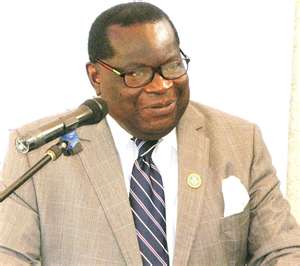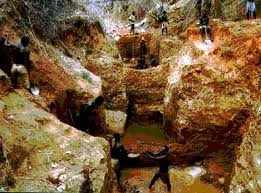Economic Planning Minister Goodall Gondwe says he is confident the local economy will recover in the next 11 months.
Gondwe told the media in an interview Tuesday, the economy may even bounce back before the 11 month period.
President Joyce Banda in May this year told reporters in Lilongwe that the economy needed US$1 billion to recover and that the process would take 18 months.
“When I was getting into government, I did not know the extent of damage done to our economy. Our economy is in total mess,” said Banda in May.
“When I was briefed by the Chief Secretary and the Reserve Bank of Malawi Governor, I was told we have huge challenges on our economy. We have to make crucial decisions in order to recover from the mess,” she added.
Since then, the Banda administration has put in place a number of reforms such as the devaluation and subsequent floatation of the kwacha, bank rate hikes as well as tightening of fiscal policy.
According to the President the reforms have helped to unlock the foreign exchange amounting to over US$800 million since April this year.
Asked whether the remaining 11 months are enough for the economy to recover, Gondwe sounded optimistic.
“It depends on how you define recovery. Our definition of recovery entails having inflation falling, interest rates going down, exchange rate stabilising and achieving economic growth.
“But you must appreciate that economics belongs to the real world. We many have a drought within the growing season, who knows? But if all this remain equal then I am confident we will recover sooner rather than later,” said Gondwe.
Economics Association of Malawi (Ecama) Executive Director Nelson Mkandawire said it is possible to recover the economy in 11 months arguing that 11 months is a long period to correct things.
Mkandawire said, already things are in Malawi’s favour.
He said critical issues at the moment are around forex generation or building reserves to match with the level of imports and balancing the monetary with fiscal policies.
“There is need to find ways on how we can generate more revenues through broadening tax base as an example, fight corruption and evasion around tax collection and utilisation, build capacity of MRA, borrow for purposes of investment not financing consumption and grow exports.
“We need to revisit the FISP [Farm Input Subsidy Programme] budget line by re-targeting beneficiaries as well as looking at how much they should contribute, it should be a developmental policy not political,” said Mkandawire.
He said, as a country, Malawi can make a deliberate move to borrow in order to boost the tourism sector, work on the airports, improve air transport, build hotels along Lake Malawi as well as in and around national parks and game reserves as well as improving roads and railroads.
Mkandawire said this will see more tourists coming to Malawi which in turn will boost revenues.
“Come April, we may see a good revenue it being a crop season and we also hope that donor confidence will continue. Looking ahead 2014 is an election year so it matters most how the ruling party gurus build their winning formula too.
“Austerity measures are also very important, how we spend, where we spend matters a lot in economic governance. Building investor as well as creditors confidence is yet another important aspect,” said Mkandawire.
In her Christmas and New Year address to Malawians, Banda said the darkest hour of the night is behind Malawians and that dawn is just about to break off.
“I urge you to stay on course. Malawi will no longer be the same. We are about to close this chapter in our history of continued suffering.
“We have begun a new book about Malawi; a new book that tells the story of our great people, of our wealth and glory and of our peace and redemption,” said Banda.





No comments! Be the first commenter?